Dogs can be housetrained at any age, but puppies learn much more quickly than adult dogs. Puppies are cute enough that most owners forgive puppy-sized accidents, but adult-size deposits are much more of a problem.
It takes a bit of trial and error before most puppies get the hang of housetraining, but a little patience will go a very long way.
Pups need a bathroom break after every meal, nap, and playtime. Depending on its age and breed, most dogs eat several times per day. Prevent accidents by anticipating when the puppy needs a break.
Create a Schedule
Base potty breaks on the pup's age, activity level, and mealtimes.
Your pup has a baby-size bladder and a limited capacity to "hold it." In general, a two-month-old puppy needs a break about every two hours. At three months, every four hours should be adequate.
It can vary a bit between breeds, with large and giant breeds having a bit more capacity and toy breeds a bit less. But in general, here's what to expect:
- 4-month-old pups can wait five hours
- 5-month-olds can wait about six hours
- 7-month-old pups should be able to wait about eight hours.
Choose a Location
Dogs rely on scent cues to remind them what's expected. Whether you create an indoor toilet spot with newspaper, pee-pads, or a doggy litter box, or select an outdoor area, take the dog to the same place each time.
Concentrate on the Act
Keep the dog on a leash until it's productive, or it may only play and then have an accident inside. Take off the leash for playtime as part of the reward for eliminating.
Name the Deed
When the dog squats, say a cue word that identifies the action. Make sure your entire family uses the selected cue consistently. Once the puppy has been productive, reward with lots of praise, play, or a tiny treat that doesn't upset its regular nutrition.
Confine and Supervise
Puppies don't want to be in an area with their own waste, so confinement can be a tool to teach a quick lesson. A small room won't work—a puppy can poop in one corner and sleep in the other. If the pup isn't productive after 15 minutes during a break, confine the dog in a crate for 15 minutes and then try again.
If the dog defecates or urinates in the crate, that confines the mess to an easily cleaned area. The dog will have to live with its mistake for a short time. The next time the puppy will be more likely to empty when offered the opportunity.
Watch for Warnings
Puppies sniff the ground and walk in circles before they go. If the dog squats inside, pick it up, stopping the process, and move it to the designated legal toilet area. Give your cue word, and praise when it's successful in the right spot.
Clean Accidents
Use an odor neutralizer to eliminate the smells that lure your puppy back to the scene of the crime.
Problems and Proofing Behavior
The biggest error puppy owners make when trying to housetrain their dogs is yelling at or hitting the dog for having an accident. This makes the puppy associate its elimination with punishment, and since dogs want to please people, negative reinforcement teaches puppies to go when you're not watching or to hide deposits from you.
Frustrating as it might be, try not to get annoyed at your puppy as it's learning where and when to go.
Timing is key when teaching cause and effect. The dog won't understand your anger has anything to do with the deposit it created five minutes ago. Unless caught in the act or pointed out within about 90 seconds, verbally correcting the puppy won't work.
People are more motivated to work for a bonus than a threat of reprimand, and so are dogs. Once the puppy learns it will be rewarded for going in the right spot, it will work to avoid accidents partly to please you.

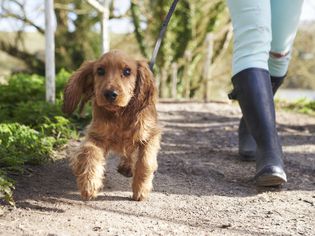
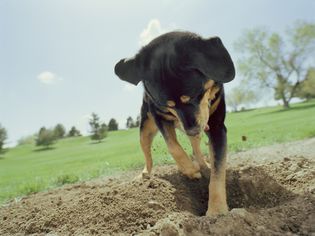
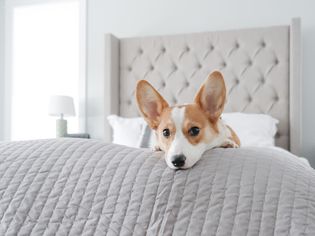
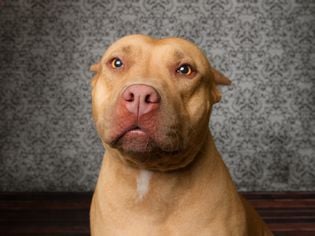

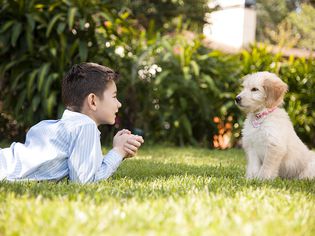

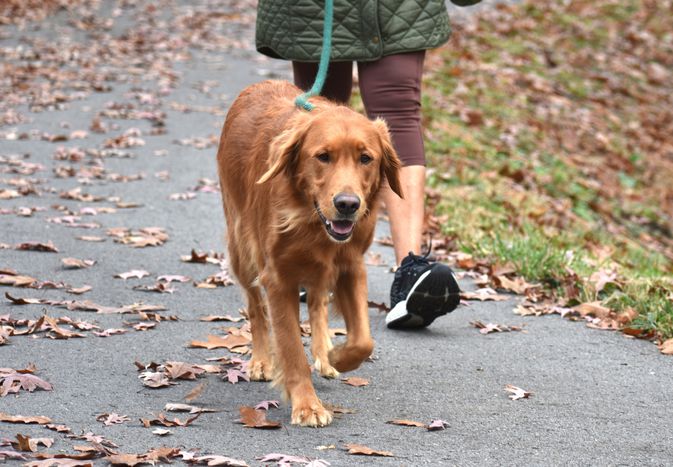
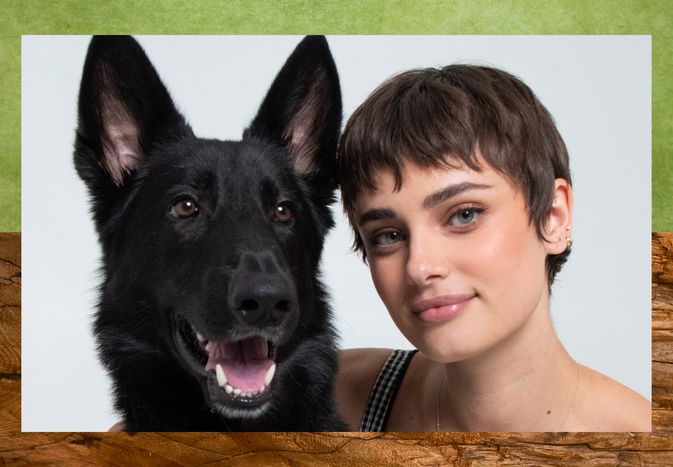
Comments on " How to Housetrain Your Puppy" :